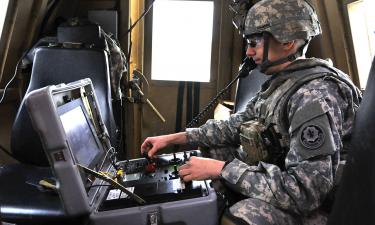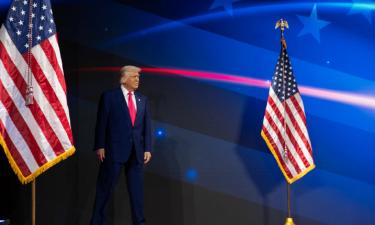August 15: Venezuela's key decision date
In Caracas, the National Election Council confirmed August 15 as the day where millions of Venezuelans will decide whether President Chavez will go ahead with his “Democratic Revolution” or not. Opposition claims appointed date was not the best alternative.
Shortly after Venezuela's President Hugo Chavez Frias finally accepted a recall vote on him, National Election Council Wednesday confirmed August 15 as date where the referendum will take place. The Council had announced on Tuesday that the opposition had gathered up to 2.54 million signatures to demand the recall, slightly surpassing the 2.43 million -20 percent of the electorate- required by the Constitution.
Chavez had already acknowledged results, as launched on Sunday the campaign before a 200 thousands crowd in the center of Caracas. “We will prevail!”, he said and praised to defeat the “fascist terrorist” opposition. “We will turn this recall referendum into the ratification of our Government”, Chavez added as his followers waved red flags.
The decision on the date of the vote has not been welcomed by the divided opposition, which would have preferred one week before, as appointed date is too close to the completion of the fourth year of his six-year term –Aug. 19-. Should Chavez lose a recall after Aug. 19 vice president and Chavez's loyal supporter, Jose Vicente Rangel, would serve out the reminder term. Opposition leaders are afraid of this scenario as think Chavez would eventually rule behind the scenes.
On the other hand, should Chavez lose a recall before Aug. 19 - the completion of the fourth year of his six-year term – new presidential elections would be held within a month. Here, is not clear yet whether Chavez could run for presidency again or not.
As Chavez administration has been “hostile” according to US hawks standards, the US government has expressed its cautious satisfaction for the latest developments. Washington's worst fears are that the situation in Venezuela turns into unrest as it did many times in the last two years, something that could endanger key Venezuela's oil supplies to the United States.
Chavez, a virulent critic of Washington's economic and foreign policies, has accused the White House of plotting to oust him during a frustrated military coup in April 2002. Washington, in turn, isn't happy that many of Cuban advisers are in Venezuela and that Chavez reportedly is shipping up to 100,000 barrels of cheap oil per day to Cuba.
As claims his government has broken with Venezuela's corrupt past and serves the interests of the 24-million nation's vast poor majority, Chavez immediately took up the recall challenge, calling it an opportunity to defeat the internal opposition. The leftist leader has embarked on a campaign to smash his opponents in what he calls "a decisive battle" for the future of the world's fifth-largest oil exporter.
"Oil is not only for a minority, so that a minority can get rich," Chavez told a crowd of supporters in the rural state of Trujillo on Tuesday.
Even when surveys are not reliable, the national private media –absolutely controlled by Chavez opponents- says a majority of Venezuelans would vote against Chavez. However, others say Chavez still enjoys a 40 percent support, high by regional standards. No certain data will be obtained prior to recall's date.
Notwithstanding, Chavez plans to leave office in a few days. PRAVDA.RU source confirmed Chavez is planning to create a Pan-American TV network, which would cover from Mexico to Argentina to compete against CNN in Spanish. It would be something like a Latin view on world affairs against a US view on Latin American affairs. At the same time, PDVSA, national oil giant, is planning to expand its investments in the United States, where controls US third largest refinery plant. Also Chavez is currently negotiating with Bolivia, Brazil and Argentina to create a South American state owned multinational channel. Too much for only two months in power.
Subscribe to Pravda.Ru Telegram channel, Facebook, RSS!





